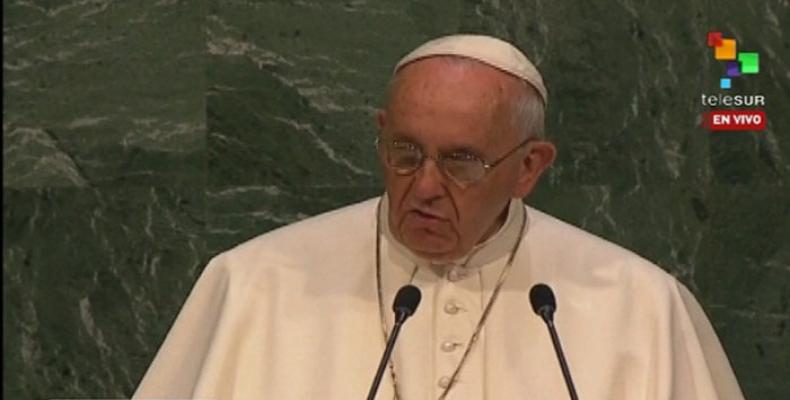The Argentinian-born Pope Francis on his four-day visit to Cuba celebrated one of his masses in Holguin Cuba, in the province where Fidel and Raúl Castro grew up.
It was indeed a most significant visit on the part of this particular pope because of his social worldview in the context of his religious perspectives and the kinds of social issues, that he has taken up.
Of course, he has been an interlocutor between the Obama administration, and the Cuban administration of President Raúl Castro in helping to move forward the establishment of diplomatic relations and draw up the agenda for normalization. His being in Cuba was a validation of this process. It was an added factor in the move to the next stage, where the bilateral commission between Cuba and the United States has been established between the two State Departments, setting forth the issues that they will now engage, and that will give content and substance to normalization.
The pope coming to Cuba first and then going to the U.S. is significant, and supports the internal dynamics of Cuba and the bilateral relationships between Cuba and the U.S.
The Catholic church, with this particular pope, is building upon the previous pope having come to Cuba, it builds upon the fact that it was the Rev. Jesse Jackson of the United States of America who first escorted Fidel Castro to a church service over a decade or so ago that no one really gives a lot of recognition to.
But it is a reflection that the pope, and the papal institution, represents a validating ethical, moral, and political force within the world. And that this particular Pope Francis has really cast his lot in saying that the United States should join the community of nations in recognizing Cuba, as has all of Latin America and the Caribbean, and the rest of the world long before Western Europe came along.
The papal visit is also a reflection on the part of the government of Cuba, to indicate that they endorse people's spiritual strivings, their freedom to do that. It's not an endorsement of the intervention of the role of religion into the democratic process of citizens determining what their state wants.
This pope is from Latin America. This pope has lived through operation Condor, organized by the imperial power of the U.S. State Department and military along with fascist dictators during that period in Latin America, where there were many disappeared people, butchered people, babies taken from progressives and leftists who were arguing for alternatives and given to other families and raised. Those inquiries are still unfolding in Brazil today under Dilma Rousseff, unfolding in Argentina and in Chile.
This pope lived through that and is aware of the sentiments in Latin America. He is also sensitive to Latin America having petitioned the UN year-in and year-out with other countries around the world for the readmission of Cuba as a full member of the nation-state protocols in the Americas.
Pope Francis is playing a conscious role through his religious frameworks as a part of the conciliation process in Latin America, the new integration of Latin America and the Caribbean that includes all of the states. And of course, the new normalization, the establishment of diplomatic relations and the process of normalization of relations between the U.S. and Cuba.
Cuba is the seat of the moral conscience of independence in Latin America and the Caribbean. They respect Cuba for having stood forth to be self-determined in the face of the behemoth, the United States, to its north.
There is no question that the pope is negotiating all of those dimensions, both religious and in his role as a citizen coming out of Latin America, and he is looking at how to establish a more peaceful protocol to negotiate all the differences.


